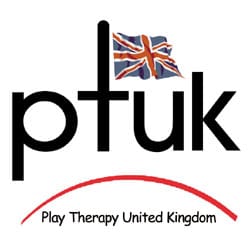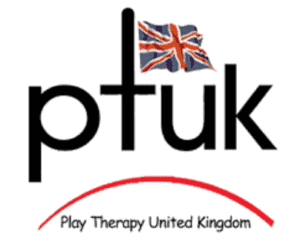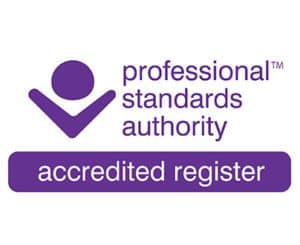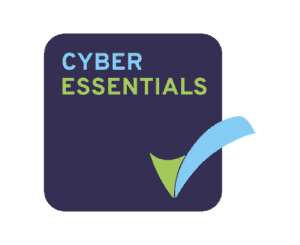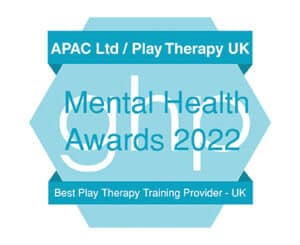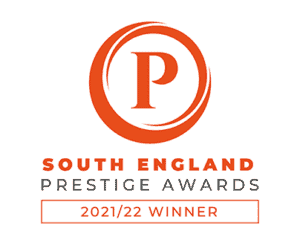About Play Therapy
There are a number of studies indicating that 20% of children have some form of emotional, behaviour or mental health problem: Venables (1983); Rutter, Cox et al (1975); Jeffers & Fitzgerald (1991); Porteous (1991), Department of Education statistics etc. The 1999 and 2004 British government surveys estimated that 10% of children have a mental health problem. It is also essential to realise that mental health, like physical health, is as much about prevention as cure.
PTUK’s clinical evidence base, containing over 12,000 cases, shows that between 77% and 84% of children show a positive change through the use of play and creative arts therapies when delivered to PTUK standards. The more severe the problem, the higher the percentage of children that show a positive change.
PTUK was established in October 2000. Our main activities are:
- Managing the Register of Play and Creative Arts Therapists which is accredited by the Professional Standards Authority.
- Quality assuring our registrants through a stringent revalidation process and managing standards of clinical supervision.
- Accrediting training courses for the initial training required to meet the standards of the register and for continuous professional training (CPD).
- Extending our clinical evidence base to improve the quality of our registrants’ practice and to demonstrate the effectiveness of play therapy delivered to PTUK standards.
- Providing a range of services to support the career development of our registrants
Our registrants use an Integrative Holistic model of Play Therapy. It was introduced in 2002 to replace earlier models. It is validated by the PTUK clinical evidence base. It integrates the therapeutic use of a wide range of creative arts media – the Play Therapy Tool-Kit; working with unconscious as well as conscious processes; using non-directive and directive approaches and integrating research with practice.
We have grown to be the largest and most progressive Play Therapy professional organisation in the UK through our high standards and programme of continual innovation.
Conditions that therapeutic play and play therapy can help to alleviate - a check list
Our greatest natural resource is the minds of our children. But 20% of children in the UK have an emotional, behaviour or mental health problem.
Do you know a child who?
- Is not realising its full potential – academically, or socially?
- Has nightmares or has disturbed sleep?
- Is at risk of being/is excluded from school?
- Has suffered trauma?
- Has suffered emotional, physical or sexual abuse?
- Is adopted or fostered or in the process of being?
- Suffers because of separated/divorced parents?
- Suffers from anxiety, stress or phobias?
- Has suffered a loss or bereavement of any kind?
- Is withdrawn or continually unhappy?
- Is ill, disabled, or autistic?
- Finds it difficult to make friends?
- Quarrels frequently with peers or siblings?
- Bullies others or is bullied themselves?
- Displays inappropriate behaviour?
- Doesn’t play?
Then you need to know how play and creative arts therapies can help.
Guidelines for Referral Based upon the Observation of Children’s Play
These guidelines are based upon an extract from Children’s Imaginative Play published by the Greenwood Publishing Group August 2002. The author Shlomo Ariel PhD is a clinical psychologist and supervisor of clinical psychology and marital and family therapy in Israel.
Integrative play diagnosis and play therapy can be carried out properly only by specially trained professional therapists. However, lay persons – parents, educators and other carers of children – who are worried about a child under their care, can include careful observations of the child’s spontaneous play in their sources of information about the child’s emotional condition. It should be stressed that not every aspect of children’s play, or, for that matter, non-play behaviour, that might look to an adult worrying is really a cause for concern. Perfectly normal young children are often irrational, irresponsible, and absurd. The make-believe play of well-adjusted children often includes themes of patricide, matricide, suicide, sadism, and a whole assortment of ideas that might look way out, bizarre and crazy from an adult standpoint.
What in children’s play should be a cause for concern then? In some cases the very lack of such frightening elements. Suppose for instance that a child has been going through extremely stressful experiences, e.g. death of a parent, abuse, traumatic divorce or the like. If his or her make believe play exhibits at that period no trace whatsoever of these experiences but depicts an ideal, beautiful world without any trouble or difficulties, it would be reasonable to surmise that this child is not coping with the bad experience well and perhaps has no way of working through his or her emotional reactions. In this case it would perhaps be advisable to refer the child to professional counselling or play therapy.
Another feature of children’s play that can be viewed as an indication for referral to therapy is obsessive, persistent repetition of certain negative signified contents. For instance, if a child has brought up the theme of matricide in his make-believe play once or twice, among a variety other contents, this is not necessarily a cause for concern. But if a child plays only about matricide, over and over again, for weeks on end, then this should perhaps be taken as an alarm.
Another sign of possible serious difficulties is what looks like a persistent loss of the distinction between play and reality. This can take various forms, e.g. fear of toys, as if they can really do harm, slipping from play aggression to real aggression toward people, animals or objects and insisting stubbornly that the imaginary make-believe characters and events are real.
Parents and other carers are also advised to be watchful of signs of regression in play. If for instance a six year old child whose make-believe play used to be highly developed appears to have gone back to the earliest stage of make-believe play development and remains only there for a considerable period of time this is perhaps a sign of regression due to emotional distress.
It should be stressed however, that identifying emotional distress which requires therapy should never be based only on the child’s make-believe play. The functioning of the child in all areas of life should be taken into account. Make-believe play is only one of a variety of sources of information that should be considered.
Deciding what to do if a child has an emotional or behaviour problem
The following guidelines may help you to decide what to do if you know a child or children with emotional, behaviour or mental health problems.
Parent or carer
| Slight or Mild | Is the child under 3?
Between 3 and 14? |
Consider filial play
Consider therapeutic play, play therapy or filial play |
| Moderate or a number of mild problems | Over 3 years?
Over 14 years? |
Consider play therapy
Consider counselling – talking therapy |
| Severe | Between 3 and 14? |
See your doctor for a referral to a child psychotherapist etc. |
How to identify the severity of a problem (guidelines)
See also Guidelines for Referral based on observation of play
If you work with children
Do you wish to acquire therapeutic play skills or become a play therapist?
Look at – the PTUK Career Development Map
Look at details of approved courses
Consider becoming a member of PTUK
If you manage a school, home or centre for children?
Ask PTUK about ways of introducing or extending an emotional support service to supplement academic and behaviour support services.
Alternatively ask your local Play Therapist, or PTUK about our informative workshops for setting up managed play therapy services and corporate membership.
PTUK Firsts
Play Therapy UK has led the play therapy profession through continuous innovation. Here are some of our firsts:
2000 PTUK adopts a new style of Constitution to allow faster decision making. A better foundation for getting things done.
2001 Two new communication tools: a Spectrum of Needs and the Therapeutic Play Continuum. Recognises that each child is different and that interventions and resources need to be matched to needs.
2001 Replaces a Code of Ethics with an Ethical Framework that is designed for working with children. Aids faster therapeutic decision taking by practitioners. Takes into account the great variety of ethical issues.
2001 Introduces clinical governance procedures based on pre and post therapy measures. Improves the quality assurance of work and data for practice based research.
2002 Develops a Profession Structure model and the first set of Play Therapy competencies. More focused learning objectives for training courses; improved job descriptions; better employer understanding.
2003 SEPACTO system launched. Addresses the objectives of the agency employing Play Therapists and how much play therapy contributes to them.
2004 Play Therapy Demand Model developed. Provides supporting evidence for obtaining funding for play therapy in local areas.
2005 Programme evaluation chosen as the main research method to show the effectiveness of Play Therapy. Being based on real life conditions it includes all the variables influencing the child and the therapist. Results shown to be reproducible.
2006 Filial Play Coaching competencies developed Recognises that parents are an important agent of change, but are not therapists, so need special coaching.
2009 Research started on the therapeutic activities of children. Will be used to inform the updating of competencies and training content.
2011 Publication of large scale research study based on over 8000 cases. Results less than one in a thousand due to chance. Between 74% and 83% of children receiving play therapy, delivered to PTUK/PTI standards, show a positive change. Provides bench mark guidelines for clinical audits.
2012 Competencies for Clinical Supervisors of Play and Creative Arts Therapists published Improves the training for a key position in the quality assurance of practitioners’ work. April 2013 First Play Therapy Register to be accredited by the Professional Standards Authority under the new AR programme. Increased recognition and credibility of Play Therapy as a distinct health profession with high quality standards of practice.
2013 Develops competencies and a grade for a Counsellor of Children and Young People. Integrates play and creative arts therapies with talking therapy.
2014 Free of charge software launched for Registrants to manage their annual revalidation process and information for their own clinical and management reports. (Caerus project) Releases time for clinical work; improves accuracy of information; enables the Registrant to conduct a more thorough clinical audit of their work.
